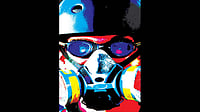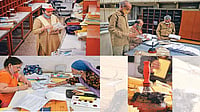I deal with many peculiar cases every day, but the ones that amuse me are the ‘Google patients’. That’s not the name of a novel psychological condition; they are the ones who consult me after googling their symptoms, armed with prognoses and diagnoses. Sometimes they are right and often not. But I do enjoy these interactions. Google is the first point of reference for medical conditions today. Many people upload their experiences and videos online. But the problem is that internet searches do not present an accurate answer, which causes confusion and unnecessary anxiety.
It takes extra time to convince people when they come with preconceived notions based on online searches. However, it has emboldened patients and their families as it helps them be mentally prepared before an appointment. Whenever I come across anything new, I first search it online and then consult a WhatsApp group of doctors. The reference books that graced the tables of doctors until the 1990s have now been replaced with a laptop or desktop; the books have been consigned to libraries.
Way back in the 1970s, when I returned to India to start my practice, I would first consult my colleagues or call up an expert in case of a doubt. Google has made the dissemination of medical facts and breakthroughs instantaneous. Moreover, there is a plethora of visuals—a luxury in the 1970s and ’80s. While Google has helped the medical fraternity double check hunches and facts, there should be filters on the information that search results throw up.
(As told to Jyotika Sood)






















